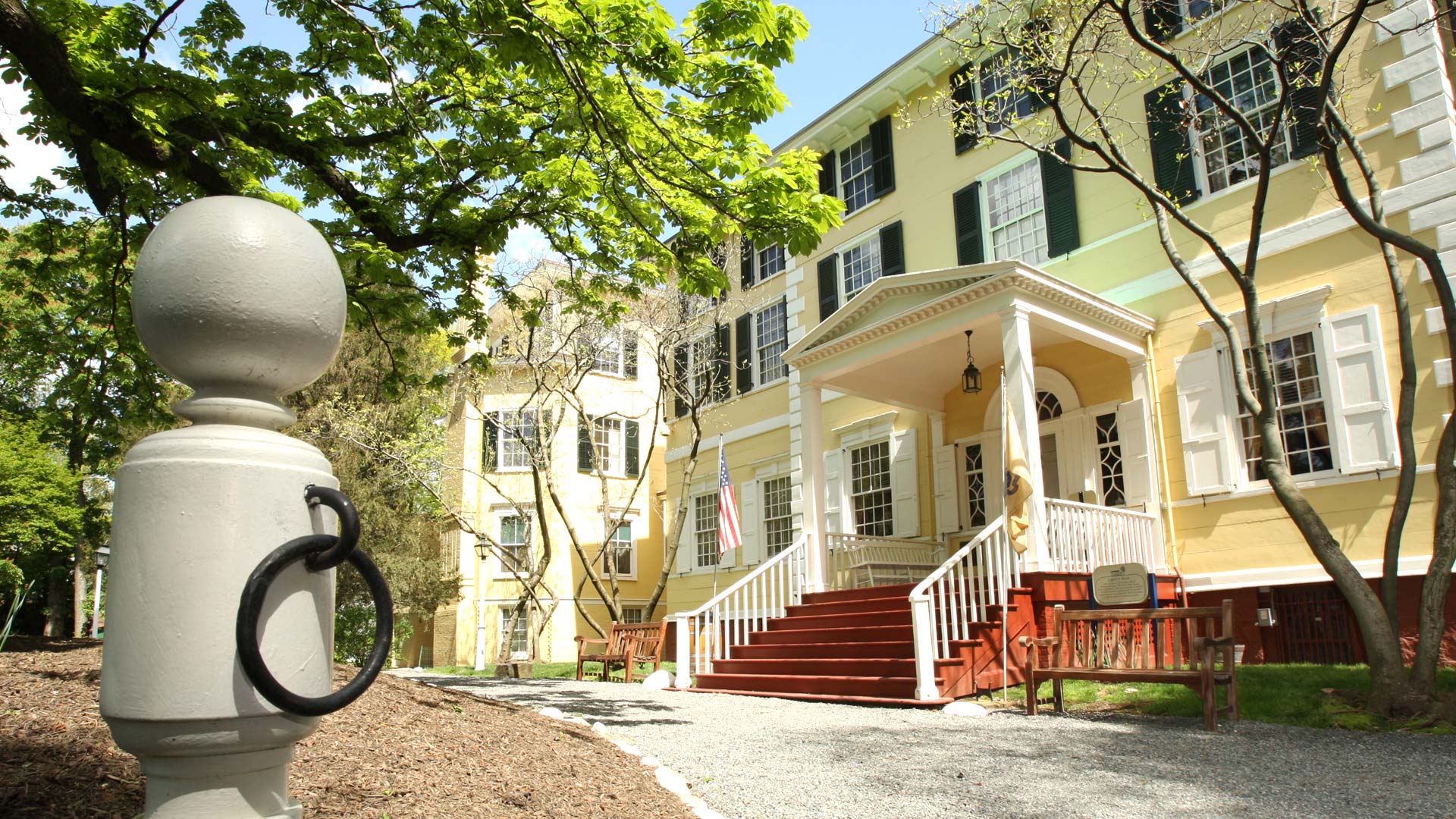By Leanne Manna | Published by April 13, 2018

Liberty Hall is a hidden gem of Kean University. Located across the street near the STEM building, not many students are aware of its existence and even fewer could share anything about it.
Liberty Hall was built in 1772 by William Livingston, a New York lawyer who would go on to become the first elected governor of New Jersey and signer of the Constitution. Livingston built Liberty Hall to be his countryside estate away from the hustle and bustle of the city. Unfortunately for him, his four daughters who lived for the active city lifestyle decided to bring New York society to Liberty Hall and the Livingston’s frequently had guests including Alexander Hamilton and John Jay who would go on to marry Sarah Livingston in Liberty Hall’s great hall.
In 1776 the United States declared Independence from Great Britain and the Revolution was in full swing. As the wartime governor, Livingston was a wanted man and as such, had to spend a lot of time away from the manor. His wife, Susannah French Livingston, elected to stay at the house despite the great danger she faced. She believed that her presence in the house would save it from being burned or otherwise destroyed by the British. She may have been right because although the house was raided several times during the war it was left standing.
Most other houses in the area did not have the same luck and were burned by the British. Regardless, the Livingston women who stayed in the house and faced great danger as the war progressed.
One daughter, also named Susannah, wrote later in her life about an incident where she and a servant girl were alone in the house and had to hide in the cellar while shots were exchanged both in the house and on the grounds. Wealth and privilege did not guarantee women protection during the war either. A few miles down the road, Hannah Caldwell, the wife of pastor and patriot James Caldwell was murdered and most likely robbed by the British. This incident is so infamous that it is depicted in the Union County Seal today. Nevertheless, the Livingston women persisted and protected their home and livelihood.
One story goes that after the murder of Hannah Caldwell, the British went to raid Liberty Hall during the night. That night it had started to storm and as the soldiers climbed the stairs one daughter, either Susannah or Catherine, stood at the top and was illuminated by lightning. The British, who were also probably drunk, thought she was the ghost of Caldwell and fled the house.
The war had greatly depleted Livingston’s funds and his wife, who had been managing their finances, suggested selling Liberty Hall. Livingston refused on the grounds that he wanted all of his children, especially his then unmarried daughters, to have a substantial inheritance. He also said that he did not want his wife to be at the mercy of a landlord should he die before her.
Livingston would end up living in the house until his death in 1790. His son, Henry Brockholst Livingston, would inherit the house and sell it. Liberty Hall was out of the family for several years until it was purchased in trust for Susan Livingston, the governor’s niece. She marries John Kean, a merchant from South Carolina, and their descendants lived in the house until 1995.
Liberty Hall is open for public tours Tuesday-Saturday from 10 am- 3 pm with tours leaving every hour. Thank you to Liberty Hall Museum and the Kean University Archives and Special Collections for the information and images.

You must be logged in to post a comment.